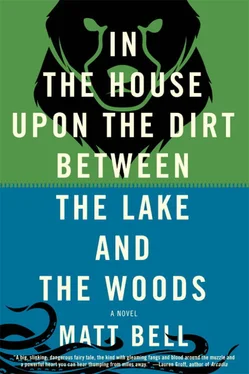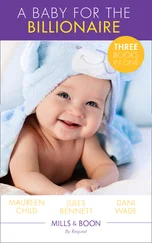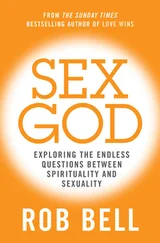As we had burned the deep house empty so the foundling had watched his mother catch a fever she could not cool, and as she burned she diminished: her breasts flattened, her skin loosened, until she was all bones and jaundice. But still the foundling stayed at her side, and still he sometimes drank from her, for eventually there was no other food, and after what little milk my wife had left soured soon he too was sick, the fever that filled her filling him. And with each meal he took from her he had to know his mother was dying.
The hot house above burned, and as it did her skin reddened, then blistered and flaked off, and the foundling had the scars to prove it, bands of once-blistered flesh on his hands and wrists, earned smoothing back the smoking snakes of his mother’s hair. When his mother could not lift her head to cry or her hands to feel, the foundling had crawled into their bed for the last time, curved his stalled bones inside the skinny ess of her own.
Cradled in that last cradle, the foundling wept, and as she burned away his tears his mother spoke.
I know your face, she said, but you are not the only one. Still there is a memory of your father, the first time I met him, which always I have held back, and if I remember nothing else I remember that.
A sweating silence followed, and some new hours of forgetting, and then she said, And I remember a bear, and also a cub crying for its mother.
I took that cub, she said, and as I carried it from a cave I used my mouth to peel off its softest fur, clump by clump.
What the foundling told me last: That when he left, my wife still remembered my name.
That she remembered at least that, if she remembered nothing else.
That she said my true name to the foundling. That she whispered its two syllables into his ear against the curve of his collarbone. That she breathed me onto his skin, gave him all the sympathetic memories she had left, so he would not be afraid as he had been, as I had made him to be.
With a final kiss, she said, I wish I would remember you after you are gone, and then she sent him away, sent him as an orphan into the world she had made—as the orphan he would become, if I would not take him in, or if I was no longer alive—and then for a while he was alone in the world, a best-loved son unremembered, climbing upward through those many miles of smoldered spires, their crumbling structures sloping in. And as he’d climbed he took into himself the miles of scorched stairs and hollowed halls, that mimicry of his mother’s own interior landscape, that palace of her I had wrecked and ruined, and now with this telling he meant to give me what he had carried, so that I might be forced to carry it too.
FROM THE PILE OF CAST-OFFfurs beside the house, I chose the cleanest strips to replace the dirty dressing around my ruined ankle, my trap-clubbed foot, and then I washed my face in a bucket of salt water, my hair in the same. As I moved around the outside of the house I kept my eyes on the tree line, nervous that the bear might appear there. I had not seen her since the day we fought in the woods, that same day she gave me the fur her son had once been buried inside, kept still in the satchel slung often around my body, which contained also the near-identical fur I had taken from the deep house, the only object pulled from my fire. Now I again removed the two furs from that satchel, tried to remember which was real and which only sung, and when I could not I told myself that it could not matter, this slim difference between the memory and the thing remembered.
At the most crimson hour of the dusk, I led the foundling down to the cold shores of the lake, where I put him into the rowboat and then rowed us out upon the water. As I fished for our dinner I wondered aloud if the foundling had the same strength of voice his mother had, if he could tear down the last stars, invisible behind the light of his mother’s moon—or else could he buoy that red shape back up into the sagging sky, almost broken then? Since the foundling’s return more cracks had appeared across the bowl of the sky, and now all the visible sky was fractured, streaked with more stuck lightning, those sights emitting their accompanying hummings and buzzings and long low thunders, and I asked him if he knew what would happen next, if his mother had told him what we should do.
But no matter what I said, the foundling said nothing in return, only sometimes shook his head or shrugged, stared off across the water. Now it seemed impossible to recall the face he had worn before, when last he was meant to be my son: Whatever song his mother had used to take him from cub to boy had perhaps blocked his progress from boy to adult, and I wondered if this could be set right, if there was some other song his mother could sing that would unbind him.
When next he lifted his eyes to mine, I pointed to the sky, and I said, Do you know what the red moon means? Or what happens next?
I said, Are you scared?
I said, In the morning we will go back. We will find your mother, and if we can help her, then we will.
The foundling still did not speak, only stared at me with his changeless face, the constellation of his eyes only two points, a single line, and yet what story I saw there, answering even without his speech to guide me: That he missed her. That if we could not find her again it might be a kindness, as he would be able to hope forever that she was not dead.
And then again I was jealous of what he had that I did not, and because I could not stop myself, I said, Everything you will lose when she dies, I have already lost.
It was the fingerling who broke the silence that followed, speaking for the first time since the night of his last attack, saying NO, saying NO again, saying THE BEAR IS COMING, THE BEAR IS COME, THE BEAR HAS COME AND SHE WAITS FOR YOU ON THE DIRT AND SHE WAITS FOR YOU IN THE HOUSE AND SHE WILL TAKE WHAT YOU HAVE KEPT FROM HER, AND THIS TIME I WILL NOT LET YOU DEFEAT HER, and what I heard also was not DEFEAT but DECEIVE, a choice perhaps, spoken in two voices.
I stopped my rowing, pulled the paddles up from the water, let the surface still around us. The air filled with our gray breath, and the shimmer of my wife’s moon seemed to waver from above, and though I could not see her I heard the bear roar from the dirt, and with that roar I saw more lightning crack across the sky, and also that the lightning already frozen there had begun to move, first slowly and then quickening, sparking red and green and blue-white across the inner sphere. The bear barked, then roared again—and in that roar I heard a new sound, a naming, and where had the bear learned such a thing—and then as the bear called the red moon’s name that moon began its fall, and as it burst the last skin of the sky it fractured, bursting into some innumerable flock of missiles, and each irregular shape ignited as it dropped through the atmosphere, and this time there was no wife-song, no other power waiting to save us.
THE FRACTURING MOON FELL THROUGHa cloud of sound, the racket of the sky’s awful cracking, and every part of the moon’s broken body arrived aflame, the first rough clumps to impact jolting the dirt into the air, and then the next wave concussed the already-broken ground, sending shock waves across the lake and also debris back toward the sky, great eruptions digging deeper craters. Above us the other moon snapped back upon the dazed ellipse of its orbit, suddenly brighter without competition, and as I watched it dance back into place I also saw how the sundered sky refused the dirt’s offering, so that soon gravity returned earth to earth, ten thousand handfuls of rock and sod falling upon the dirt and the lake, and for some time both the foundling and I had to crouch and cover our heads, to protect ourselves from the last moon rocks piling up in the bottom of the boat or else splashing loudly into the water around us.
Читать дальше












